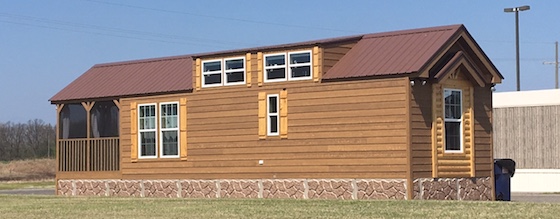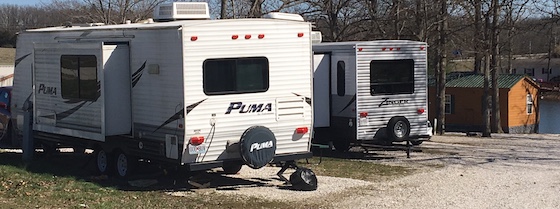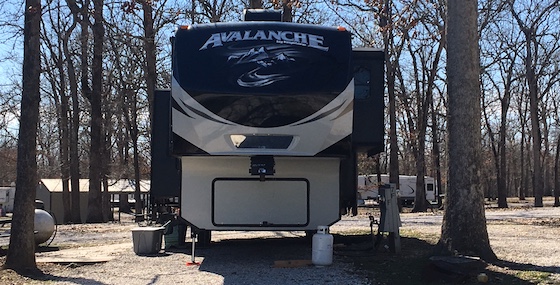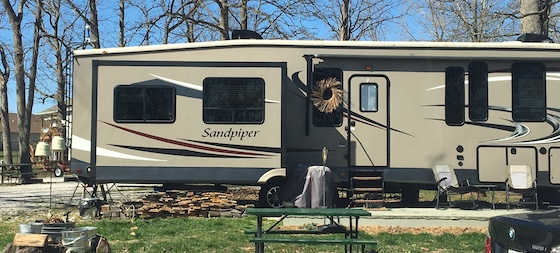Buying an RV park is more than just walking around and counting how many RVs are currently parked at the property and multiplying times 365 to get the gross revenue. There are some basic strategies in evaluating an RV park that all buyers should follow. So what are they?
You need at least three years of financials
One key to successful buying of RV parks is to take the last three years of financial performance and average it. This gives you protection in that it not only blends the months of each year (and seasons) but also blends individual years that may have been not representative of normal performance (like higher renovations that reduced traffic, or a special event that spurred occupancy for a brief time). You should never take any given month and annualize it – you must rely on averaging larger periods of time.
Normalize them
On the expense side of things, it’s very important to “normalize” numbers. What that means is to peruse the expense line items and search for things that shouldn’t be there or were one time charges. For example, we’ve seen cases where the RV park owner has a sudden $30,000 cost classified as “repair and maintenance”. But upon further scrutiny, it’s discovered that the charge was not repair at all, but simply the owner buying a new car for their own personal use and trying to avoid income tax on that money. In that case, you would back that item out, and then re-analyze that cost item.
Average them
Just as you should to in revenue, you also need to average the expense line items over several years, to get the most accurate portrayal of the park’s performance. For example, let’s assume an RV park has a $40,000 electricity bill in year 1, a $60,000 electricity bill in year 2, and a $50,000 electricity bill in year 3. What’s the normal electricity bill? The average of those three, which is $50,000 per year. Look at how different (and inaccurate) your budget would be if you simply annualized year 1 or year 2.
Use byproducts to verify occupancy
So how can you ensure that the occupancy at the RV park is as portrayed? What if the seller just lied and made up those numbers? A smart buyer will combat this by looking at supportive byproducts to occupancy. For example, higher occupancy should be visible in higher electricity bills, as all RVs use power. You can even break down the average electricity use by occupied unit based on prior numbers, and then mathematically support the occupancy. All industries have byproducts from customer count – whether it’s water use, or power use, etc. – and all you have to do is determine those byproducts and see if it looks logical. Scientists cannot see the atom, but they know when they’ve split it because of the byproducts of that force field. You can do the same with an RV park.
Compare to current – what do you see
While there are rare anomalies – such as visiting an RV park in a blizzard – most RV parks should show numbers that resemble what you can see in the field. If the seller is saying that the revenue in May 2016 was $110,000, and you are there in May 2017 and you only count 5 RVs on property, then something’s wrong. Why would you see such a different environment than what the financials suggest? When you see things that are different in the field from what the historic numbers portrayed, then you shoud put on the brakes and figure out what’s really going on.
The importance of gut feeling
Have you ever watched the PBS special on how an aircraft carrier works? You have all these computers lining a room, and sailors that are shouting out data like “incoming missiles at 1,000 miles” and “three planes on the deck” and “20 knots due east”. And in the middle of the room is the captain with a glass wall and an erasable marker, writing down data, and screaming things like “fire the anti-missiles”, “have those three planes take off and put ten more on the deck” and “turn the ship north and advance to 30 knots”. Why don’t they just have the computers interface directly and cut out the middleman? The answer is that the human mind is still considered to be superior to the computer. So taking that a step further, a smart RV buyer should listen to their own mind, in the form of “gut instinct”. You should never buy an RV park that you are not excited about 100% -- both with your rational mind and your gut instinct.
Conclusion
Budgeting is all about analyzing and normalizing data. If you do this correctly, you will be able to make unbelievably accurate budgets and projections.








